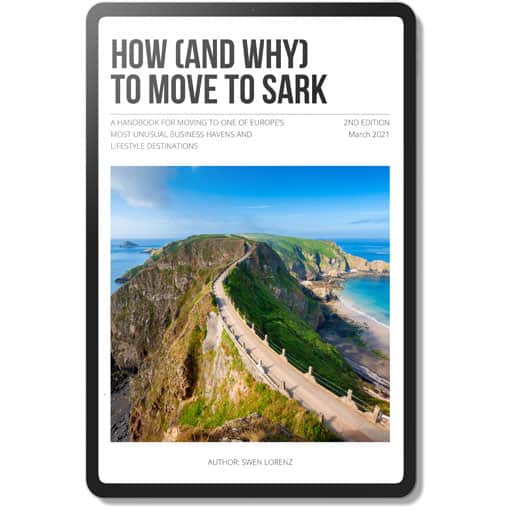For many (bidding) entrepreneurs, fundraising often feels like going to an interview.
Indeed, you should also look at it from the other way around. It’s investors interviewing funders! Many a venture has suffered because the investor’s interests and the entrepreneur’s interests weren’t aligned.
As I said in “12 lessons from JamJar Investments for entrepreneurs who are looking for funding“, there is a strong case for entrepreneurs asking tough questions about their funders.
In my April 2017 article I quoted an investment manager from JamJar: “As an entrepreneur, you want to make sure you are not getting funding from the wrong kind of investor.”
Does the funder’s level of ambition and level of solvency match with your level of ambition? This is a question you should ask.
It’s all about turning the tables and approaching it from the perspective of asking whether this particular funder is truly the single best financier that you can imagine for your venture. Does the funder’s level of ambition and level of solvency match with your level of ambition? This is a question you should ask.
Such an approach might seem daunting and pie-in-the-sky. That’s why I didn’t want to miss the opportunity to tell you about a real life example.
At a dinner in London, I recently met someone who you are likely to find inspiring in this regard.
Meet Anne Boden, CEO and Founder of Starling Bank
Anne has created one of the UK’s “challenger banks”. The term refers to newly created banks that aim to disrupt the market for conventional high street banks. A different way of describing them would be to say that these are banks that do not suffer under factors such as outdated IT systems or excessive staffing. They run on the most modern available IT and have small, agile teams. They can offer their customers better, cheaper service.
Obviously, creating a new deposit taking bank from scratch is no small feat.
To cut to the chase, Anne had to raise a staggering £48m to get the bank off the ground (that was $70m at the exchange rate of the time).
Typically, this would have involved:
- Finding and signing up multiple investors.
- Managing all of these investors as you build the operation.
- Coordinating both existing and prospective investors when the next fundraising takes place and making sure they all get onto the same page.
Anyone who has been a CEO or board member of a company that has to raise funds under such circumstances knows how any single fundraising round can keep a management team busy for a whole year or even longer. Needless to say, during that period the other parts of developing and growing the business suffer.
That’s why any ambitious entrepreneur should seriously consider aiming for the ultimate ambitious goal in funding.
- Find ONE funder.
- Have an agreement for that funder providing sufficient money to avoid having to cut corners.
- Get that funder’s commitment to also back future funding rounds.
Impossible? Too much of a dream?
Anne Boden pulled it off.
All the funding needed from just one single source
Starling Bank was funded by a Bahamas-based, secretive billionaire: Harald McPike.
What exactly Harald saw in Anne and Starling Bank, no one knows for sure. He doesn’t give interviews, there are few photos of him, and his company, Quantres, doesn’t even operate more than a barebone website. When asked about operational milestones that Starling Bank has to fulfil to deliver what it promised to Harald, the company refused to provide details.
It does seem, however, that Harald has seen the value of focus, speedy execution, and doing things properly.
During Anne’s fundraising, he agreed to fund the total £48m.
He also already said – according to Anne’s elaborations at the dinner – that he is likely going to back funding rounds no. 2 and no. 3 as and when they arise. (Though this also goes without saying. If he didn’t, follow-on funders would be concerned.)
So as far as Anne is concerned, she can now focus virtually 100% of her time on building the business and creating as big a success story as possible.
When it comes to investor relations, I am sure the occasional trip to the Bahamas beats having to keep several, or even dozens, of funders abreast. I am saying that without having any idea whether Anne has ever set foot in the Bahamas.
No doubt, every entrepreneur who has yet to secure funding will envy her.
3 vital tips for presenting your case
There are no short-cuts to achieving such a funding deal, nor is there a formula for creating the right kind of fundraising pitch.
What does hold true in any case, though, is the following:
- Always present different scenarios to your funders and make one about being insanely ambitious. Price that scenario and show what you could achieve if funders, management and staff all pulled on the same rope to go after a carefully planned blue-sky-scenario.
- Tying in with the previous point, show just how transformative the company could be (for its clients, its industry, maybe even the world) if it was funded in such an efficient, powerful way. Super-rich people like the idea of transformation and disruption.
- Divide your ambitious proposal into several phases, so that you can offer such a funder the option of signing up for the large amount but with only a smaller amount being payable right away and the remaining funds being payable upon reaching certain milestones.
Super-rich people like the idea of transformation and disruption.
None of this is rocket science, but as I know from my work on boards, many companies are hesitant to outline and pursue such a hyper-ambitious approach. What’s wrong with aiming for the stars?
You should consider sticking out from the crowd!
If anyone doubts the validity and feasibility of such an approach, tell them of Anne Boden and her work at Starling Bank. I used it on a few people, and in every single discussion, it led to people shutting up.
The best way to get potential funders’ interest in such a proposal is usually to ask their advice. Put a business plan with a lower amount in front of them but ask them if they feel that you should pursue something on a bigger scale, and if so, how they would go about it. For that discussion, have a plan or at least an outline of such a scenario ready. Mega-successful people usually love being asked for advice.
As the example of Anne Boden shows, it might just work out in your favour….
If you enjoyed this, you might also find the following articles useful:
Want to print this article? Open a printer friendly version.
Did you find this article useful and enjoyable? If you want to read my next articles right when they come out, please sign up to my email list.
Share this post:


